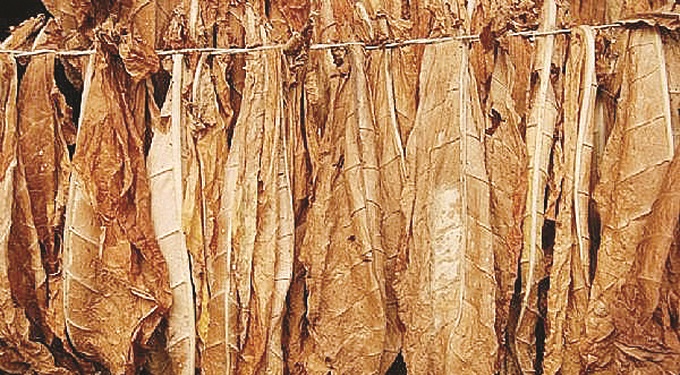Land reform beneficiary scores big on exports

Nqobile Bhebhe, Senior Business Reporter
A 64-YEAR-OLD Gweru farmer, who is a beneficiary of the Land Reform Programme, Mrs Matilda Manhambo, has made massive strides in penetrating the European Union market as she has this year alone exported 18 tonnes of peas to the Netherlands.
Despite the existence of sanctions imposed on Zimbabwe by the United States and its Western allies as punishment for the Government’s decision to redistribute land, Mrs Manhambo says since she ventured into farming in 2006 at Kufumaishungu Farm, she has never looked back and has realised her empowerment dream instead.
The former colonial master, Britain, in protest over land redistribution, lobbied its allies to gang up against Zimbabwe through punitive economic and travel measures, which continue to frustrate exports and fresh investment.
However, with land measuring 196 hectares, Mrs Manhambo says she has worked hard to produce a variety of crops for local and export markets. She now employs 21 workers and has a 99-year-lease tenure from the Government as guarantee of security of property ownership.
“I was allocated the farm in 2006 through the land reform programme and that is when I started farming, beginning with livestock and later venturing into horticulture. I ventured into the export market four years ago, starting with peas,” she told Business Chronicle in an interview in Bulawayo where she attended a recent meeting for top exporters in the southern region.
Mrs Manhambo’s success story is a unique reflection of how women can also distinguish themselves economically by contributing to national production and creating more job opportunities. She said when she occupied the farm in 2006, it was lying idle with no infrastructure but to date she has managed to make it productive.
“When I was allocated the farm, it was just a bushy area but now I have the infrastructure,” she said.
Mrs Manhambo says her journey towards exporting has been made easy through exposure and knowledge capacitation by the national trade promotional body, ZimTrade, which took her on board in its capacity building programmes. This has seen her acquiring key certification, which is necessary for one to venture into the competitive export market.
“I had to do a Global Gap certificate for peas. ZimTrade is now firmly guiding me and is training me to be the ‘Next She Exporter’ and I regularly attend their training programmes,” said Mrs Manhambo.
“ZimTrade is helping us with marketing surveys and keeps us involved on foreign markets. I am happy to be involved in the export market because as long as you have a contract, you don’t have to look for markets.
“I export to the Netherlands. This year I had 18 tonnes of peas and I intend to export more. From one hectare of peas, the minimum is six tonnes hence I am still to export more.”
The ‘Next She Exporter’ programme caters for women entrepreneurs in various sectors of the economy with the exception of mining, fuels and electricity. It is the first of its kind in Zimbabwe and is expected to grow female entrepreneurs and contribute to Zimbabwe’s competitiveness on both regional and global markets.
According to the trade promotion body, there will be a one-on-one mentorship with seasoned female business leaders.
Launched in March this year, the programme also seeks to address one of the biggest hurdles faced by women in exports, which is access to markets and intends to increase market linkages and networking opportunities for women while stimulating community-based-growth through entrepreneurship development across the country.
“When ZimTrade officials come to audit for the Global Gap certificate, they need to see the infrastructure. I have been encouraged to build infrastructure and that is an achievement for me,” said Manhambo..

Matilda Manhambo
According to her, the major challenge she is facing is that she does not directly export but uses agents who at times delay in effecting payments.
“The only challenge is that I am not able to export directly, I am using agents and some of the agents delay in making payments. If I was exporting directly, I could have been far,” she said.
In March this year she added flowers and hopes to realise more dividend from the venture.
“In Gweru the weather is good for horticulture and because of the Global Gap Certificate I am also having crops done on standard agreed conditions,” said Mrs Manhambo.
“As a female farmer, people trust women and always think that women are straight forward. So, that means I have a huge opportunity to get clients.”
The business is, however, not without challenges as she encounters power cuts, funding constraints and lack of access to the local market.
“Load shedding is a big challenge. Power cuts make it difficult to irrigate. Funding is another issue. Banks do have the money but it is too expensive for farmers to borrow,” said Mrs Manhambo.
She said on the local market the big challenge is flooding of produce on the market.
” People from Harare come with trucks to Gweru so we don’t get good value for our produce. Also, when we engage big shops to supply them with our produce, they tell us to apply from Harare where they are headquartered, said Mrs Manhambo.












Comments